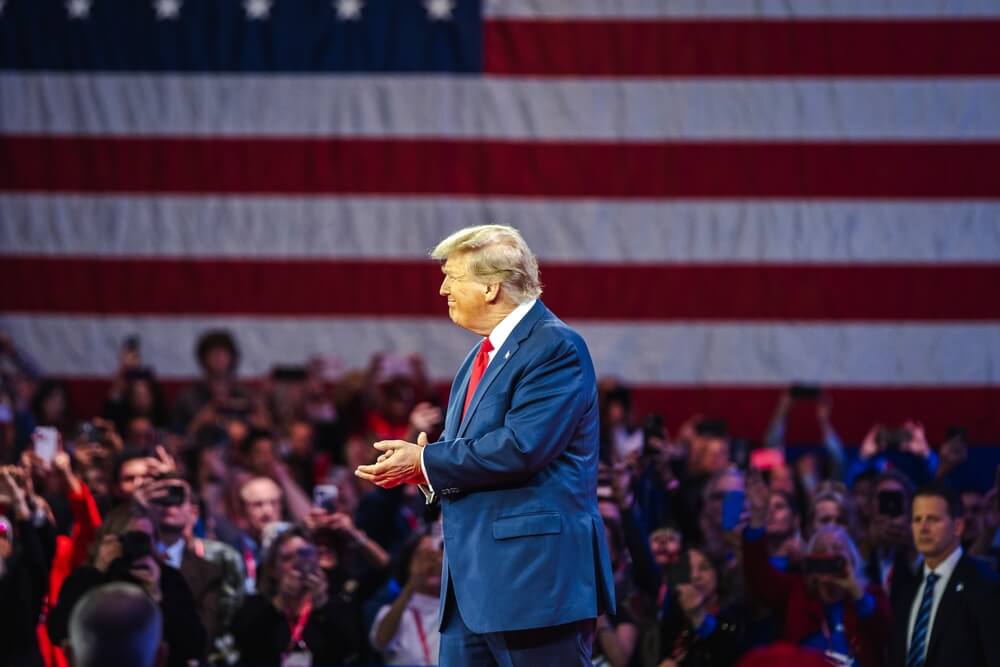During a grandiose visit to the UK ten years ago, Chinese leader Xi Jinping spoke reverently of how much his country had been influenced by film and TV classics such as James Bond and Downton Abbey.
Chinese audiences will, of course, continue to fully enjoy the products of the British creative industry, but their counterparts in Hollywood and the US in general have cause for concern.
The tariff war between the USA and China has claimed its first "victim" in the entertainment industry, as the authorities in Beijing announced a restriction on imports of Hollywood films on Thursday.
In its willingness to "fight to the end", as the Chinese Ministry of Commerce announced, Beijing has raised import tariffs on American goods from 84% to 125%, responding to the flood of American import tariffs that have so far reached 145%.
The new Chinese move against the Hollywood industry could set a precedent in the current trade war, as previous tariffs on both sides have affected trade in goods and not services.
Furthermore, the new Chinese restriction on imports from the "dream factory" will not have a particularly large impact on either the manufacturers or the Chinese entertainment market.
"We will follow market rules, respect the audience's choices, and moderately reduce the number of American films imported," the Chinese National Film Administration announced.
A small loss for the box office
Until now, this state institution has restricted imports to a maximum of ten Hollywood productions per year.
The enormous growth of the Chinese film industry in recent years has pushed American filmmakers out of the market, with the result that around 80% of annual box office revenues come from domestic films.
On the other hand, Hollywood's revenue in China is no more than 5% of its total distribution revenue. This means that the new Chinese barrier will have no particular impact on any of the warring parties.
The same holds true for the effects of Trump's tariffs on other markets, but only when the direct financial impact is considered.
There are possible indirect consequences that could deal a severe blow to the American entertainment industry
Considering that the entertainment industry, films and streaming platforms are not covered by the regime of the new import tariffs, this sector has no reason to worry about a drop in revenue for now.
However, there are possible indirect consequences that could deal a severe blow to the American entertainment industry, which is certainly the largest and wealthiest in the world.
The decline of advertising
The indirect impact of global cuts in advertising budgets, already the subject of warnings, is a cause for concern. As the biggest advertisers are also from the industrial sector, such as car, food or clothing manufacturers, increased export tariffs could trigger a wave of cost-cutting, with advertising budgets being the first casualties.
The experience of the 2008 global financial crisis reminds us of this, as companies often cut marketing costs as a first measure in panicked attempts to reduce expenses.
Estimates for this year's growth in the advertising industry have fallen from 4.5% to 3.6%
In an analysis of the advertising market, The Hollywood Reporter warns that estimates for this year's growth in the advertising industry have fallen from 4.5% last December to 3.6%.
“By now… what we can see is a certainty of additional negative factors, including volatility around trade policies and a more extreme threat to supply chains and corporate decision-making than we previously expected,” said advertising analyst Brian Wieser.
Danger of long-term consequences
An even greater risk for the industry, in view of the US government's protectionist policy, lies on the consumer side. If expectations that the increase in import tariffs will lead to a decline in economic parameters and a rise in inflation materialise, consumers will be forced to cut their household budgets; media and entertainment are usually at the top of the list.
 Protectionist measures to stimulate the domestic creative industries could prompt Donald Trump to impose new restrictions, this time also in the services sector
Protectionist measures to stimulate the domestic creative industries could prompt Donald Trump to impose new restrictions, this time also in the services sector
“One of the first places they are going to spend less is in media and entertainment,” PwC's media and advertising market expert CJ Bangah told Variety.
And here lies another danger for the industry, as overall economic parameters are expected to fall due to more expensive international trade, including household budgets, which will have to look for a way out.
Trump's plan to boost the domestic industry by raising import tariffs will find fertile ground in the existing global restrictions on American production companies and platforms.
Last February, the US president hinted that he could look at levelling the field in the film and streaming industries when he highlighted legislation in a memo that "requires American streaming services to fund local productions" in many countries around the world, particularly in Europe.
Protectionist measures to stimulate the domestic creative industries, which often put American producers on an unequal footing, could prompt the US president to impose new restrictions, this time also in the services sector.